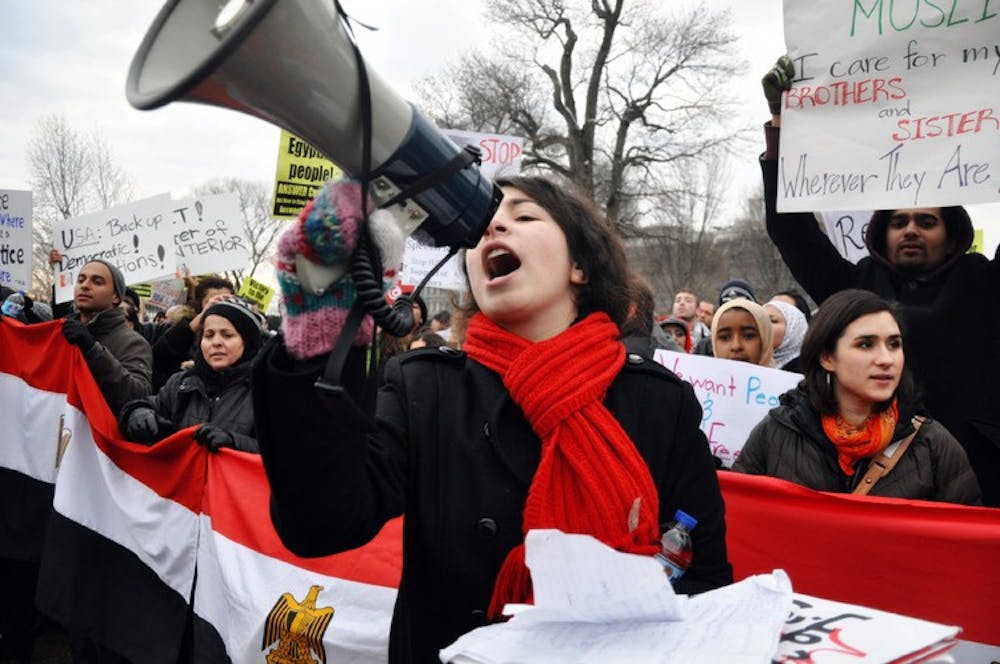Crowds gathered outside the Egyptian Embassy Jan. 29 to protest President Hosni Mubarak’s regime.
Afterward, approximately 400 people moved down Connecticut Avenue, bound for the White House.
The march continued downtown, going under Dupont Circle, echoing under bridges, shouting, “young people want the fall of the current order” in Arabic.
Once at the White House, protesters chanted, “Obama you should know, Mubarak has to go” across the North Lawn.
But then the chants stopped and people knelt in a moment of silence for Egypt.
For AU students who have studied abroad in Cairo, the protest signaled U.S. solidarity with the Egyptian people in their quest for freedom.
Adam Gallagher, a junior in the School of Communication, held a sign saying, “UNITED AGAINST AMERICAN DOMINATION, FREE EGYPT.”
“I was in Cairo last semester studying abroad and every class there talked about how they needed democracy to take that next step forward to become a developed nation,” he said. “So I’m glad they’re finally taking steps towards it."
Lena Shareef, a senior in SOC, said the protests struck a personal chord with her.
“We’ve been to all these places and now to see the [National Democratic Party headquarters] on fire,” she said. “We can imagine those people how it must be there, we know what it was like normally.”
Starr Brainard, a freshman in the College of Arts and Sciences, took a gap year to study in a suburb of Cairo last year and got in touch with a friend there on his cell phone earlier that day.
Brainard said his friend told him that when the police pulled out, many prisoners escaped.
“He says people are armed, guarding their homes to protect themselves and their families and their possessions,” Brainard said. “It’s basically chaos.”
Elizabeth Zito, a senior in CAS, said she had not heard from her friends in Egypt since the media blackout Jan. 28. Before the blackout, her friends said the police force violence was worse than they imagined.
“My friend received a rubber bullet to the mouth, two of them had almost been arrested but escaped — a little bit bruised — then one of my friends actually had to rescue his brother from a police truck by breaking the lock,” Zito said.
College of Arts and Sciences Professor Ibtisam Ibrahim, who teaches Contemporary Arab World, characterized the movement as a non-violent, youth-led revolution.
Ibrahim said she doubts the movement would end in another totalitarian regime.
“The leading group is a very young, very secular generation who have benefited greatly from the Internet and Facebook communicating with each other,” she said.
Not only was Facebook used to gather the people for the protest at the embassy in D.C., but it has been used in Egypt to organize those protests as well. Some of the students at the protest said that along with CNN or Al Jazeera, they use Facebook and Twitter to get quick updates.
Damian Fontanez, a member of Students for Justice in Palestine at AU, strode down the street, draped in the Egyptian flag.
“Freedom is important to me,” Fontanez said. “Regardless of which country.”
lgiangreco@theeagleonline.com





